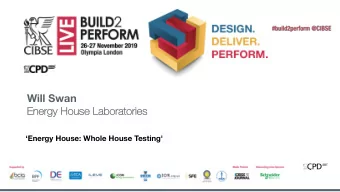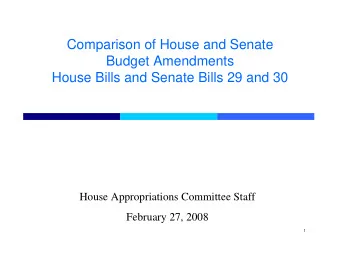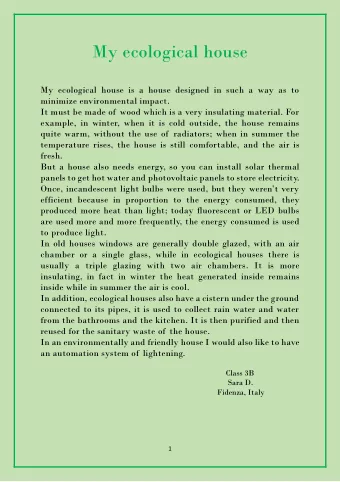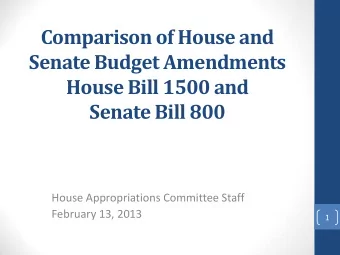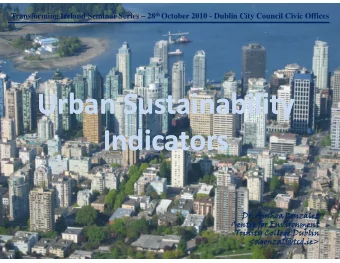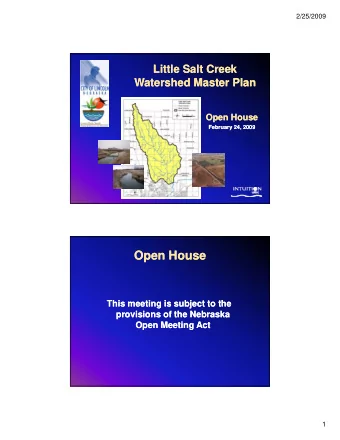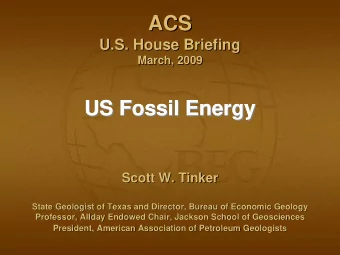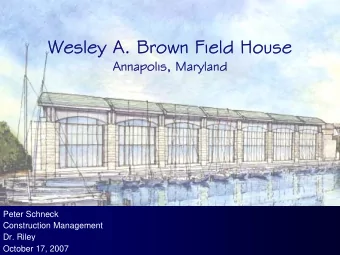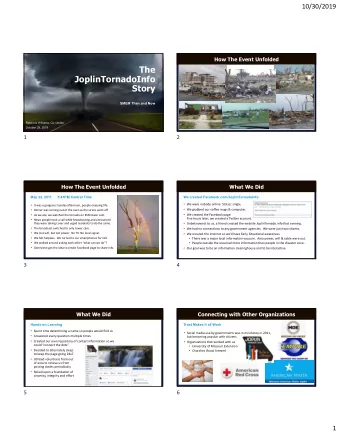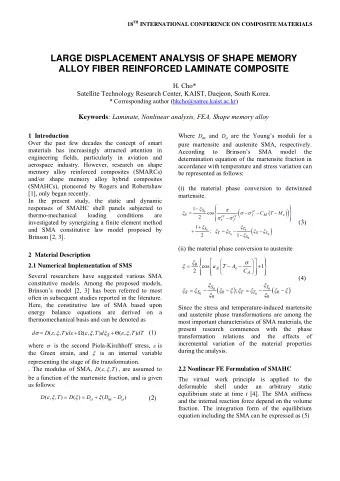
Chesser House Sustainability Project Sustainability Project - PowerPoint PPT Presentation
Chesser House Sustainability Project Sustainability Project Presenter: Peter Stokoe System Solutions Engineering Project Overview 1 Aims: Provide a report which assesses and compares various energy and greenhouse gas saving techniques for
Chesser House Sustainability Project Sustainability Project Presenter: Peter Stokoe System Solutions Engineering
Project Overview 1 Aims: • Provide a report which assesses and compares various energy and greenhouse gas saving techniques for commercial office buildings. • Provide recommendations based on comparison for possible upgrades which would achieve the desired possible upgrades which would achieve the desired NABERS Energy (base building) rating at Chesser House. • Provide comments on the suitability of each concept to other commercial office buildings, along with estimated reductions in energy consumption where possible.
Project Overview 2 Chesser House: • 12 Storey commercial office building, located in Adelaide’s CBD. • Constructed in the late 1980s. • Recently completed several energy efficiency upgrades, with further upgrades planned. • Estimated to currently be achieving a NABERS energy (Base Building) rating of 4 stars. ( At time of study, estimate was 3.5 stars ). Images sourced from private collection
Methodology 1 Completing the study involved 4 key stages: • Data collection and site familiarisation phase � Drawings � Technical data � Metering data • Detailed research phase � Focusing on ‘innovative’ concepts � Focusing on ‘innovative’ concepts • Modeling and calculation phase • Reporting phase � Comparative results included
Methodology 2 Each concept was allocated into 1 of 3 categories: Business As Usual: Sustainable Practice: Stretch Objectives:
Methodology 3 Business As Usual: • Re-Commissioning and Re-Tuning • Heat Recovery Ventilation • High Efficiency Lighting • Outdoor Air Economy Cycle Systems • Part Load Performance • Metering • Gas Fired Technologies Gas Fired Technologies • Pressure Independent Characterised Control Valves Images sourced from pierlite.com.au, belimo.com.au & supplier
Methodology 4 Sustainable Practice: • High Efficiency Thermal Insulation • Lighting Control • Chilled Beams • Glass Coatings • Cogeneration • Regenerative Lift Braking Systems • Occupant Comfort Control • Shaw Method of Air Conditioning • Fuel Cells • Absorption Chillers • Indirect Evaporative Cooling • Natural Ventilation • Induction VAV Technology Images sourced from cfcl.com.au, seeley.com.au & supplier
Methodology 5 Stretch Objectives: • Geothermal Systems • Innovative Shading • Air Engines • Green Walls/Roofs • Phase Change Materials • Building Integrated Photo Voltaic • Solar Air Conditioning • Energy Enhanced Gas • Fibre Optic Solar Lighting • Wind Energy Images sourced from csiro.au & adshelinfrastructure.com.au
Key Findings 1 Outstanding concepts: • Re -commissioning and re-tuning • Part load performance • Improved metering • Lighting control • Glass coatings • Cogeneration Cogeneration
Key Findings 2 Outstanding concepts: • SMAC • Fuel cells • Indirect evaporative cooling • Building Integrated Photovoltaic • Energy Enhanced Gas
Key Findings 3 Final Recommendations: • Implement re-commissioning/re-tuning • Improve metering • Upgrade base building lighting • Implement a lighting control strategy • Install fuel cells • Install building integrated photovoltaic cells Install building integrated photovoltaic cells Images sourced from cfcl.com.au & adshelinfrastructure.com.au
Key Findings 4 Estimated savings: Whole Building: Total Reduction in Electricity Consumption: 168,110kWhr Total Reduction in Greenhouse Gas Emissions: 125.66t Base Building: Total Reduction in Electricity Consumption: 122,410kWhr Total Reduction in Electricity Consumption: 122,410kWhr Total Reduction in Greenhouse Gas Emissions: 84.01t Percentage Electricity Consumption: 12.5% Percentage Greenhouse Gas Emissions: 8.6% Increase in NABERS Energy (base building) Rating from 3.5 to 4 stars (at time of study)
Conclusion Achievements: • Completion of the project gave Chesser Properties an insight into potential ways to achieve their desired NABERS energy rating. • A document has now been produced which can potentially assist others in the industry who wish to potentially assist others in the industry who wish to increase their NABERS energy rating.
Recommend
More recommend
Explore More Topics
Stay informed with curated content and fresh updates.
